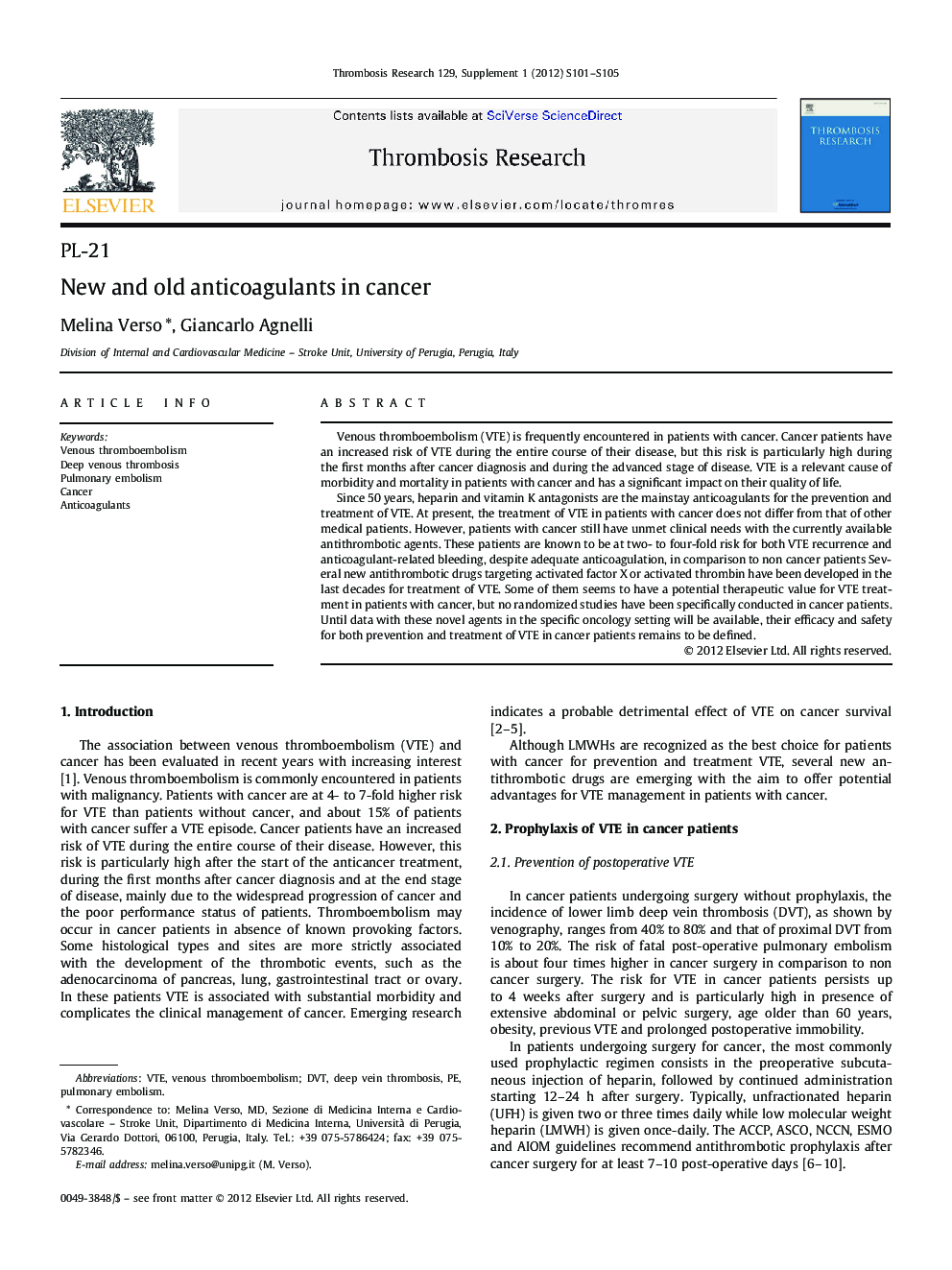| Article ID | Journal | Published Year | Pages | File Type |
|---|---|---|---|---|
| 3028540 | Thrombosis Research | 2012 | 5 Pages |
Venous thromboembolism (VTE) is frequently encountered in patients with cancer. Cancer patients have an increased risk of VTE during the entire course of their disease, but this risk is particularly high during the first months after cancer diagnosis and during the advanced stage of disease. VTE is a relevant cause of morbidity and mortality in patients with cancer and has a significant impact on their quality of life.Since 50 years, heparin and vitamin K antagonists are the mainstay anticoagulants for the prevention and treatment of VTE. At present, the treatment of VTE in patients with cancer does not differ from that of other medical patients. However, patients with cancer still have unmet clinical needs with the currently available antithrombotic agents. These patients are known to be at two- to four-fold risk for both VTE recurrence and anticoagulant-related bleeding, despite adequate anticoagulation, in comparison to non cancer patients Several new antithrombotic drugs targeting activated factor X or activated thrombin have been developed in the last decades for treatment of VTE. Some of them seems to have a potential therapeutic value for VTE treatment in patients with cancer, but no randomized studies have been specifically conducted in cancer patients. Until data with these novel agents in the specific oncology setting will be available, their efficacy and safety for both prevention and treatment of VTE in cancer patients remains to be defined.
